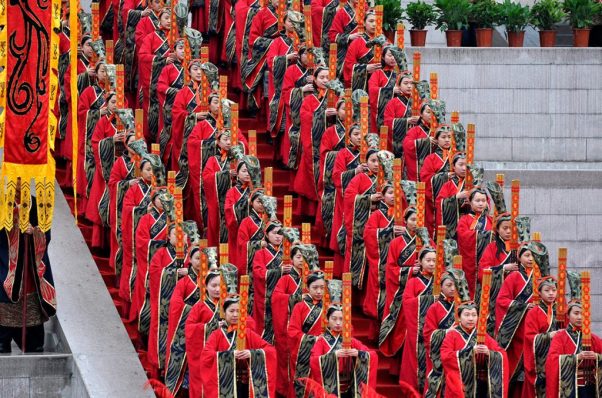The ancient tomb-sweeping Festival kicked off with a retainer who fed his leg to a hungry prince

During a civil war, Prince Chong Er and his loyal Minister Jie fled and were in exile for 19 years.
Legend says that Jie was so loyal that he even made broth out of the flesh of his leg to feed the hungry prince.
The young prince was moved to tears and knelt down in gratitude.
And Jie replied his best repayment should be a just king (did he know what was coming?)
When Chong Er later became king, he rewarded those who helped him when times were tough.
For some reason, he overlooked Jie.
Many urged Jie to remind Chong Er that he, too, should be repaid for his loyalty.
Instead, Jie packed his bags and relocated to the mountainside.
Chong Er eventually went to look for Jie in the mountains.
However, his summons was refused and he flared up.
Some bright spark suggested that Chong Er set fire to the forest to force Jie out.
After the king set fire to the forest, Jie still didn’t appear.
Jie was found dead with his mother on his back.

He was under a willow tree.
A letter (written in blood) was found in a hole in the tree. The letter read:
Giving meat and heart to my lord, hoping my lord will always be upright. An invisible ghost under a willow Is better than a loyal minister beside my lord. If my lord has a place in his heart for me, please make self-reflection when remembering me. I have a clear conscious in the nether world, being pure and bright in my offices year after year.
To commemorate Jie’s death, Chong Er created the Hanshi Festival or Cold Food and Smoke-Banning Festival.
Because no fire could be set on this day, only cold food could be eaten.
Incidentally, this may have been the first dim-sum!
One year later, Chong Er went back to the willow tree to hold a memorial ceremony and found the willow tree in bloom again.
He gave instructions that the day after Hanshi Festival was to be Qingming Festival, a day to honor the dead.
During the Tang Dynasty, the Cold Food Festival merged with the Qing Ming or ancient tomb-sweeping Festival.
Since people might get sickly by eating cold raw food, various activities were invented for body-building, including Chinese football, polo, willow-planting, tug-of-war, and rooster-fighting.
On tomb-sweeping Day, people still play tug-of-war and swing on swings.
Some people wear a willow twig on their heads to keep ghosts away.
Another ancient tomb-sweeping custom includes picking shepherd’s purse flower.
Women also pick herbs and make dumplings with them and wear the shepherd’s purse flower in their hair.
The city erected over the unfortunate Jie’s former forest is still called Jiexiu (lit. “Jie’s rest”).
Sources: thoughtco, ancient origins


